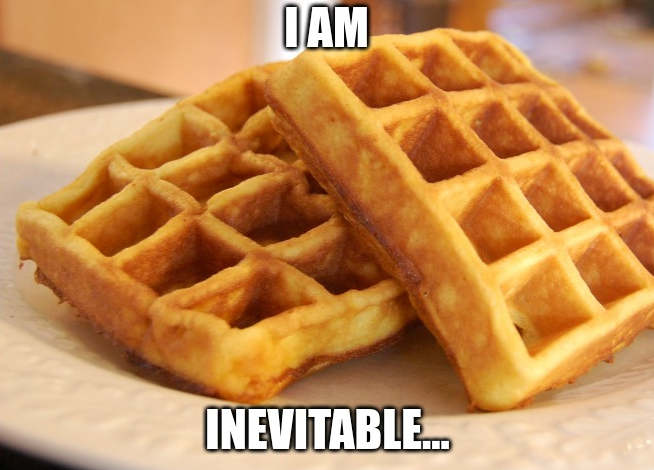Ultraviolet light can kill almost all the viruses in a room. Why isn’t it everywhere?::Can special lightbulbs end the next pandemic before it starts?
UV light kills almost all viruses because it’s ionizing EM radiation. So it also fucks humans up, xd. I mean just stay on sunlight naked for a day. Your body will be so happy. All the mutations from ionizing radiation would be great.
But yeah we life in a society where ppl is scared of Radiofrequency EM waves (non-ionizing), “dangerous cell phone towers, wifi dangerous”. That same people recomends staying long periods of time with direct sunlight contact without protection (yeah we need protection because sunlight spectrum has UV and higher freq ionizing radiation).
Sunlight healthy/radio waves dangerous, that is the most stupid statement ever.
Sunlight is beneficial in small dosis because of how we syntetise vitamins (as little as i know). But remeber if you are scared of microwaves, remeber that sunlight has much more higher freq(higher energy) waves.
In Macau, they have little trash garages which are flooded with UV at night
Because that is specifically UV-C and it’s harmful to humans too.
for example: https://wwd.com/eye/parties/hypebeast-party-uv-lights-injuries-11036559/
Without bothering to read the article, I look forward to sunburning my retinas like im at a crypto rave.
To be fair, nobody complained about getting COVID from that event.
The article does mention the issue of safety and how to address it actually
Joke aside, looks like they’re using a higher bandwidth of light, 222nm compared to more common 254nm uv for medical uses. It doesn’t penetrate the skin or eyes sufficiently to cause damage.
What if, and hear me out,
What if…
What if… we just ran them when people weren’t in the room? 🤯
Crazy what happens when you can come up with your own thoughts instead of parroting reddit comments ad nauseam.
What if… we just ran them when people weren’t in the room?
This is already a thing in many hospitals, and has been used extensively even before covid.
Lemmy users don’t respond well to reasonable criticism or facts.
Only toxic and stupid comments allowed.
And bleaching all materials in the room. And slowly destroying anything made of paper or plastic or wood.
“X can kill gems! Why don’t we use X everywhere?”
X: Thing that can kill humans too. And/or cause cancer.
See also:
-
Fire
-
chlorine gas
-
dehydration
-
Boiling water
-
Radiation
deleted by creator
tbh I wouldn’t mind running some of my stuff through a cleansing by fire ritual once in a while
It worked for Thích Quảng Đức !
Just use sarine FFS, that’ll teach them little invisible bastards
Don’t forget bleach!
-
This is the best summary I could come up with:
Ultraviolet retained a small coterie of enthusiasts over the ensuing decades, focused narrowly on preventing transmission of tuberculosis — which has no reliably effective vaccine for adults — in its remaining hotbeds, like homeless shelters.
The biggest test it received, the Tuberculosis Ultraviolet Shelter Study of 1997-2004, demonstrated that “upper room” UV, in which UV-emitting lamps are placed at least 6.9 feet above the floor where they can disinfect air without harming humans, was safe.
It wasn’t — detective work from scholars including Linsey Marr, Jose-Luis Jimenez, and Katherine Randall in the middle of the pandemic determined that this conclusion was based on a misinterpretation of the Wellses’ research that had somehow persisted for decades in the medical profession.
“This is the most difficult talk I’ve had to give in my career,” Jose-Luis Jimenez, a distinguished professor of chemistry at the University of Colorado, told the audience at the first International Congress on Far-UVC Science and Technology this past June.
But 2020 was also an unusually brutal year for airborne disease: 49,783 Americans died from influenza in 2019, for instance (and none from Covid); 1 percent of that number is about 500 people, which starts to feel comparable to the air pollution cost Jimenez identifies.
Jimenez favors using UV in very high-risk locations, such as hospitals, but worries that construction companies, schools, malls, and the like will seize on the potential of far-UV as an excuse not to invest in proper ventilation and filtration, leaving us with the ugly trade-off he identifies.
The original article contains 4,104 words, the summary contains 252 words. Saved 94%. I’m a bot and I’m open source!
We use uv light stands in the hospital. We will shut down a room and run a uv sanitizer for a bit. It works in some instances but it’s not exactly something you can just leave running all the time. Everyone would probably have a sick tan tho… To go with their skin cancer…
I worked for a company that made a UVC light system for sterilization. The amount of safety you have to build in so people wont nuke themselves makes them hard to use.Also, the bulbs we used were delicate and had issues constantly.
A bit of the old Ultraviolence, eh?
This thing kills all living things so why don’t we bathe ourselves in it?
I chugged cleaning chemicals. Now my insides are dirt free.
Bleach kills AIDS, doesn’t mean you can inject it into your bloodstream and be okay.
Supposing you brought the light into the body?! Are you going to test it?
They say the eyes are the windows to the soul, it would have to go in through there.
Because the spectrum required (UV-C) to do so is harmful to humans and the environment. Putting it EVERYWHERE would cause all kinds of problems.
The article blathers on for page after page after page talking about technology is back in the '60s and '70s, an experimental technology using UV wavelengths that supposedly don’t bother humans. And systems that only point up in a room like the UV light isn’t going to get reflected into your eyeballs. I get the feeling the author doesn’t have much of a background and was really just trying to stitch a bunch of research together without really understanding most of it.
You can safely blast the shit out of central air ducts, but it doesn’t do anything for infected breathing viruses into the air sitting next to you or the people that touched the bathroom door handle.
I suspect if we see any real non biased studies come out of any of this equipment the difference will be close to within the error bar.
This is the most informed comment in the thread where it’s clear you actually read the damn article.
Some of this does appear to be due to a widespread misunderstanding about how droplets spread disease in the medical field. It was thought that UV light far enough away to be safe would also be too far away to be effective. At least, not without additional ventilation, but ventilation itself would help reduce the spread, and we don’t do that because it’s expensive. UV would be cheap.
Research conducted during Covid corrected this scientific misunderstanding, and UV may be effective without additional ventilation. Ozone effects still need to be studied, though, as well as overall effectiveness. It might be that the additional ozone causes a few hundred additional deaths, but with the tradeoff of thousands or even millions fewer respiratory disease deaths. That would be a worthwhile tradeoff, but we don’t know what those numbers look like.
I could see UV light also causing plastics to oxidize and become brittle much faster, because they might not be made for that kind of exposure. So using UV light might mean having to replace a lot of plastic things too.
Shadows.
The issue with stuff that kills everything is that… Well it kills everything.










